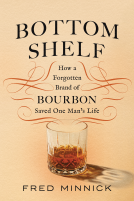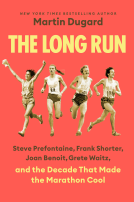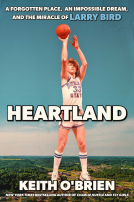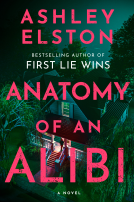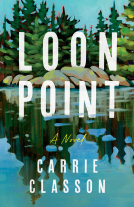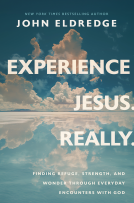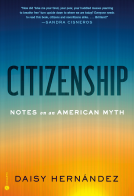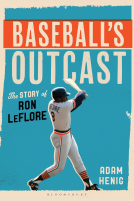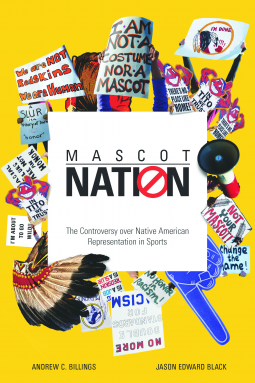
Mascot Nation
The Controversy over Native American Representations in Sports
by Andrew C. Billings; Jason Edward Black
This title was previously available on NetGalley and is now archived.
Send NetGalley books directly to your Kindle or Kindle app
1
To read on a Kindle or Kindle app, please add kindle@netgalley.com as an approved email address to receive files in your Amazon account. Click here for step-by-step instructions.
2
Also find your Kindle email address within your Amazon account, and enter it here.
Pub Date Oct 08 2018 | Archive Date Oct 12 2018
Talking about this book? Use #MascotNation #NetGalley. More hashtag tips!
Description
The issue of Native American mascots in sports raises passions but also a raft of often-unasked questions. Which voices get a hearing in an argument? What meanings do we ascribe to mascots? Who do these Indians and warriors really represent?
Andrew C. Billings and Jason Edward Black go beyond the media bluster to reassess the mascot controversy. Their multi-dimensional study delves into the textual, visual, and ritualistic and performative aspects of sports mascots. Their original research, meanwhile, surveys sports fans themselves on their thoughts when a specific mascot faces censure. The result is a book that merges critical-cultural analysis with qualitative data to offer an innovative approach to understanding the camps and fault lines on each side of the issue, the stakes in mascot debates, whether common ground can exist and, if so, how we might find it.
Andrew C. Billings is a professor and Ronald Reagan Chair of Broadcasting in the Department of Journalism and Creative Media at the University of Alabama. He is the coauthor of Olympic Television: Broadcasting the Biggest Show on Earth and Media and the Coming Out of Gay Male Athletes in American Team Sports. Jason Edward Black is chair and a professor of communication studies at the University of North Carolina at Charlotte. He is a coeditor of Decolonizing Native American Rhetoric: Communicating Self-Determination, the author of American Indians and the Rhetoric of Removal and Allotment, and a coeditor of An Archive of Hope: Harvey Milk's Speeches and Writings.
Advance Praise
"Valuable . . . Examine[s] all sides of the issue with an objective eye."--Booklist
"An exciting project that promises to impact understandings of Native American mascots in powerful ways. Mascot Nation provides fresh perspectives on the use of American Indian imagery in sport. Rather than restate existing arguments in the ongoing controversy, Billings and Black weave together established understandings and new empirical research to clarify not simply what mascots mean but also how they matter in sport and society. Of particular note, they craft a well-rounded and fully grounded account by engaging with people and perspectives from all sides of the controversy. Mascot Nation will become essential reading for anyone interested in understanding the study and struggle over Native American mascots. It will soon come to be seen as an exemplar for the study of sport communications."--C. Richard King, author of Redskins: Insult and Brand
"In Mascot Nation, Andrew Billings and Jason Black have taken on an enduring controversy in the study of sport and culture. Their savvy multi-method study illuminates how embedded representations of Native American mascots have built historical affinities that fans have for sports teams and highlights the important role that media has played in constructing and celebrating problematic understandings of Native Americans and their traditions. Through careful deconstruction of the central tendencies in case studies of media practices and the debates around them, this is a seminal study that will challenge sports fans to reconsider the harms in the legacies that have naturalized misunderstandings of Native American cultures."--Lawrence Wenner, editor-in-chief, Communication & Sport
Available Editions
| EDITION | Other Format |
| ISBN | 9780252083785 |
| PRICE | $24.95 (USD) |
| PAGES | 272 |
Links
Average rating from 7 members
Featured Reviews
 Kyle E, Reviewer
Kyle E, Reviewer
Great examination of the Native American mascot debate in sports. Some teams obviously are more entrenched in the debate than others, but all sides are researched for this book. It is an interesting read, especially for those fans with a rooting interest in a team with a Native American mascot.
 nathan h, Reviewer
nathan h, Reviewer
Up front: If you're a sports fan, passing by this book and think the subject matter is not for you, then allow me to inform that yes, THIS BOOK IS FOR YOU.
If you're interested in a proper education (could be a sea of reasons to that regard: You're unsure how to act or if you're being offensive, you want to know what the other side really thinks, etc.) of the issue, then you've come to the right place. The authors, Billings and Black, frame the book by not trying to explode the side they oppose, but by circling the issue, exploring the various ways we are approaching our Native American mascots, why this subset of mascots is markedly different than the others, and, really, they're just getting started.
I advise against scoffing and labeling this book as some instrument of the social justice warrior; what you have here is a work that aims to literally make you a better human---to be more cognizant of another group, and to be aware that, despite the fact that these sports cultures have evolved with histories all their own, that they're still rooted/steeped in appropriation and bad juju. Billingsn and Black don't leave pro-mascot groups in the dark, either; they walk up to the issue with reverence for that particular side, knowing full well the affection and ties that bind us to sports teams.
There's a heavy reliance in some chapters on social media responses and survey results, and therein you have a connection to the people, making cases in their own words, as opposed to Billings and Black regurgitating the results. It spices up the read.
You don't read something like this and then go turn you nose up to, say, FSU alumni or Redskins fans. Mascot Nation wants you to really think about this issue, to observe and respect the Native American history, and to truly get a grip on what this argument truly entails. It's not trying to broadcast a solution (even though they do offer up some avenues for a path forward), but it's trying to progress and espouse some sort of moral equilibrium.
Many thanks to NetGalley and to the University of Illinois Press for the advance read.
 Linda S, Librarian
Linda S, Librarian
MASCOT NATION by Andrew C. Billings and Jason Edward Black will definitely be of interest to our students who are pursuing questions about the controversy over Native American representations in sports. The authors, both university professors, utilize their expertise in broadcasting and communications to provide a reasoned, balanced approach to the subject. They cite many examples at both the professional level (Cleveland Indians, Atlanta Braves) and college one (Florida State Seminoles and the now-retired University of Illinois’ Chief Illiniwek). In fact, there is an entire chapter on the "Online Debate on the Acceptability of the Washington NFL Mascot" where Billings and Black discuss how an increasing number of journalists refused to use that name. They provide historical background, outline concerns of Native Americans, delve into specific cases, review national polling data and more, although often in an academic, jargon-laden manner (e.g., self-categorization, post colonialism). Throughout, they are respectful of both sides of the argument, acknowledging fans' affection for their team as well as concerns over appropriation and mis-representation. The text concludes with a discussion of five avenues where change may be possible: line of decivility; education; economic pressure; journalistic protest; and legal challenges. Roughly fifteen percent of the book is devoted to notes and index.
 Concert K, Reviewer
Concert K, Reviewer
Mascot Nation focuses on the controversy over Native American Representation in Sports. To be honest I watch a decent amount of sports but have never really thought about how Native Americans are represented especially at the mascot level. I know that news picks up every now and then about wanting to change some of the mascots to something different, but change never really seems to happen. This book goes into more detail about that and how there are polls that seem to be skewed to say that Native Americans aren't offended by it - and if they aren't, why should anyone else be? But most of these polls taken can't prove that only those voting were Native Americans.
This book focuses more on the academics of the issue and it definitely opened my eyes a bit and will have me looking at this controversy in a different way now.
I received a free e-copy of this book in order to write this review. I was not otherwise compensated. This book was released October 8, 2018 through University of Illinois Press.
Readers who liked this book also liked:
Marie Bostwick
Historical Fiction, Literary Fiction, Women's Fiction
Halle Tecco
Business, Leadership, Finance, Health, Mind & Body, Nonfiction (Adult)
Zane Lamprey
Biographies & Memoirs, Business, Leadership, Finance, Entertainment & Pop Culture
John Kotter; Holger Rathgeber
Business, Leadership, Finance, Nonfiction (Adult)
Rachel Joyce
Historical Fiction, Literary Fiction, Women's Fiction
